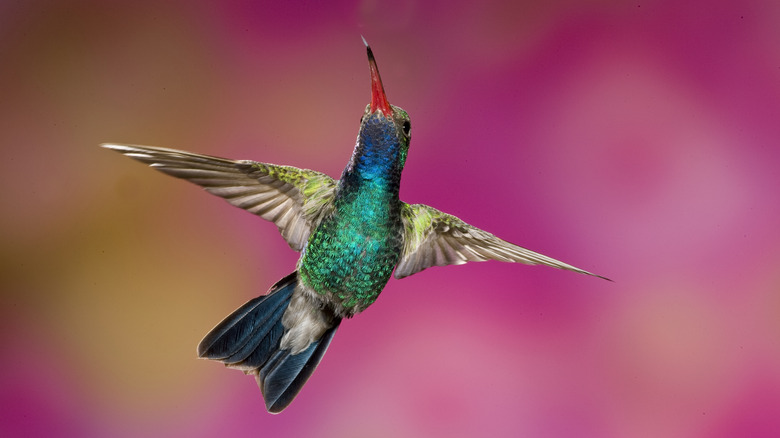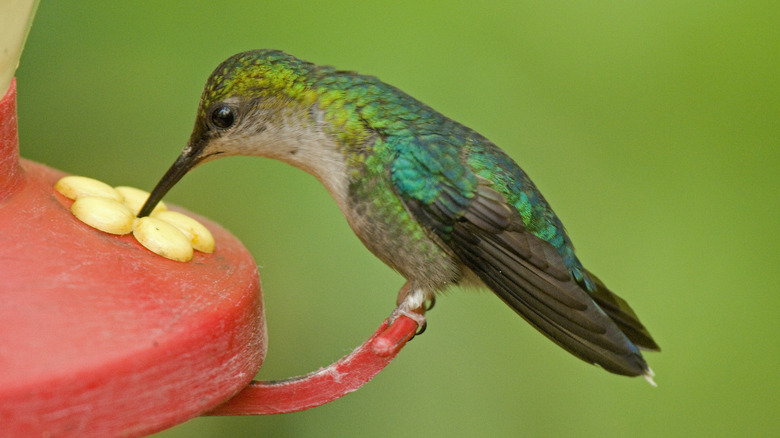Understanding The Hummingbird Diet To Better Care For Them In Your Yard
Many people would love to see more hummingbirds in their yards on a daily basis. Not only are hummingbirds amazing plant pollinators, but they're also fun to watch. The more you know about hummingbirds and their diet, the easier it will be to attract them. Although some homeowners place hummingbird feeders in their yards to provide nectar, this sugary substance is a smaller part of their diets than most people realize. While hummingbirds consume quite a bit of nectar, 80% of their diets actually consist of insects and spiders. Insects provide protein and minerals that they can't get from nectar alone.
It's also interesting to note how much hummingbirds actually eat — they tend to eat constantly and are usually indulging in a meal every 10 to 15 minutes. On a daily basis, a hummingbird is likely to visit between 1,000 and 2,000 flowers and consume half of its own body weight in nectar and insects. A hummingbird can eat hundreds of flies in a single 24-hour period. These small birds have quite an appetite and are always searching for food. Hummingbirds may steer clear of your yard if you're not providing adequate food sources, so you'll want to consider their diets carefully when looking for ways to attract them.
How to make your yard a first-class hummingbird restaurant
If you want more hummingbirds to come to your yard and garden, keep their diets in mind and provide them with what they need. Start by choosing the best hummingbird feeder and adding it to your yard. It's best to add more than one so that a single aggressive hummingbird won't take all of the nectar for itself and others will have a chance to get some as well. To give hummingbirds an even better source of nectar, consider adding more native plants and flowers to your yard. Some great plants that attract hummingbirds include wild columbine, beebalm, trumpet honeysuckle, and butterfly milkweed.
If you want to go the extra mile, consider intentionally attracting insects to your yard. A simple way to do this is to add more plants and flowers that insects help pollinate in addition to adding those pollinated by hummingbirds. It's also a good idea to eliminate pesticides in your yard. Pesticides could harm hummingbirds directly but can also eliminate their food source of insects and spiders. Another way to attract insects is to set some overripe fruit or fruit peels out on a hanging dish. In particular, an overripe banana can attract more hummingbirds to your yard since it will attract small fruit flies for them to feast on.
On top of providing nectar and insects, don't forget water. Adding a flowing water feature such as a fountain can give hummingbirds the opportunity to drink as needed. It can also give them a great place to bathe and cool off.

